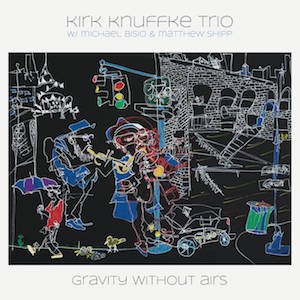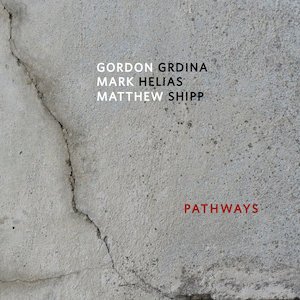Label: ears & eyes Records, 2022
Personnel - Juanma Trujillo: electric and acoustic guitars; Sean Conly: acoustic bass; Francisco Mela: drums.
Venezuelan guitarist Juanma Trujillo has been living in New York since 2014, forging his own path in the improvised/experimental music scene. For this gorgeous trio album titled Collage, he works with two judiciously chosen musicians equally keen on open settings: the assiduous American bassist Sean Conly (Darius Jones, Michael Attias) and the in-demand Cuban-born drummer Francisco Mela (McCoy Tyner, Joe Lovano). They share a mutual conscience and enhance freedom in their explorative temperament here while playing five Trujillo compositions and one impromptu presentation.
The guitarist love for cinema is reflected in “Araya”, a volatile piece inspired by the 1959 documentary of the same name by Venezuelan filmmaker Margot Beacerraf. The folksy tone of his acoustic guitar is magnetically strange, favoring abstraction and enchantment. The sounds of Liberty Ellman come to mind, and the enigmatic chordal voicings compel us to discover more.
Trujillo’s electrified axe resounds vibrantly with crunching notes on “Rebote”, in which he mixes folk and rock with a peculiar bounce; and also on “El Santo”, a noise-infused attack with a proclivity for psychedelic rock aesthetics. His expert manipulation of sound is laid down over bass pedal points and adroit snare-and-cymbal patterns. In the last segment, one finds great percussive rebounds by Mela providing added weight to a nice conclusion.
The bandleader is the trio’s guiding light, exploring space from different angles. That aspect is demonstrated not only on “Himno”, a chorale-like piece that, not being totally predictable, takes us to discernible melodic trails, but also on the fully improvised “El Chivo”, an expressionistic invention that falls between the rustic and the modern. The latter revels in unremitting acoustic folk interlocks, bowed bass for a slightly eery effect, and anxious drumming with no particular timekeeping.
The trio wraps up the set with “Simultaneo”, a laid-back crossover jazz in the vein of Bill Frisell and Charles Lloyd, which contains elements of Americana, South American folk, and some American and European classic connotations. This trio works splendidly, revealing an excellent sense of moment throughout. Trujillo, totally transparent in his multiple influences, also throws in a lot of stuff that is undoubtedly his own.
Favorite Tracks:
01 - Araya ► 03 - El Santo ► 06 - Simultaneo








































